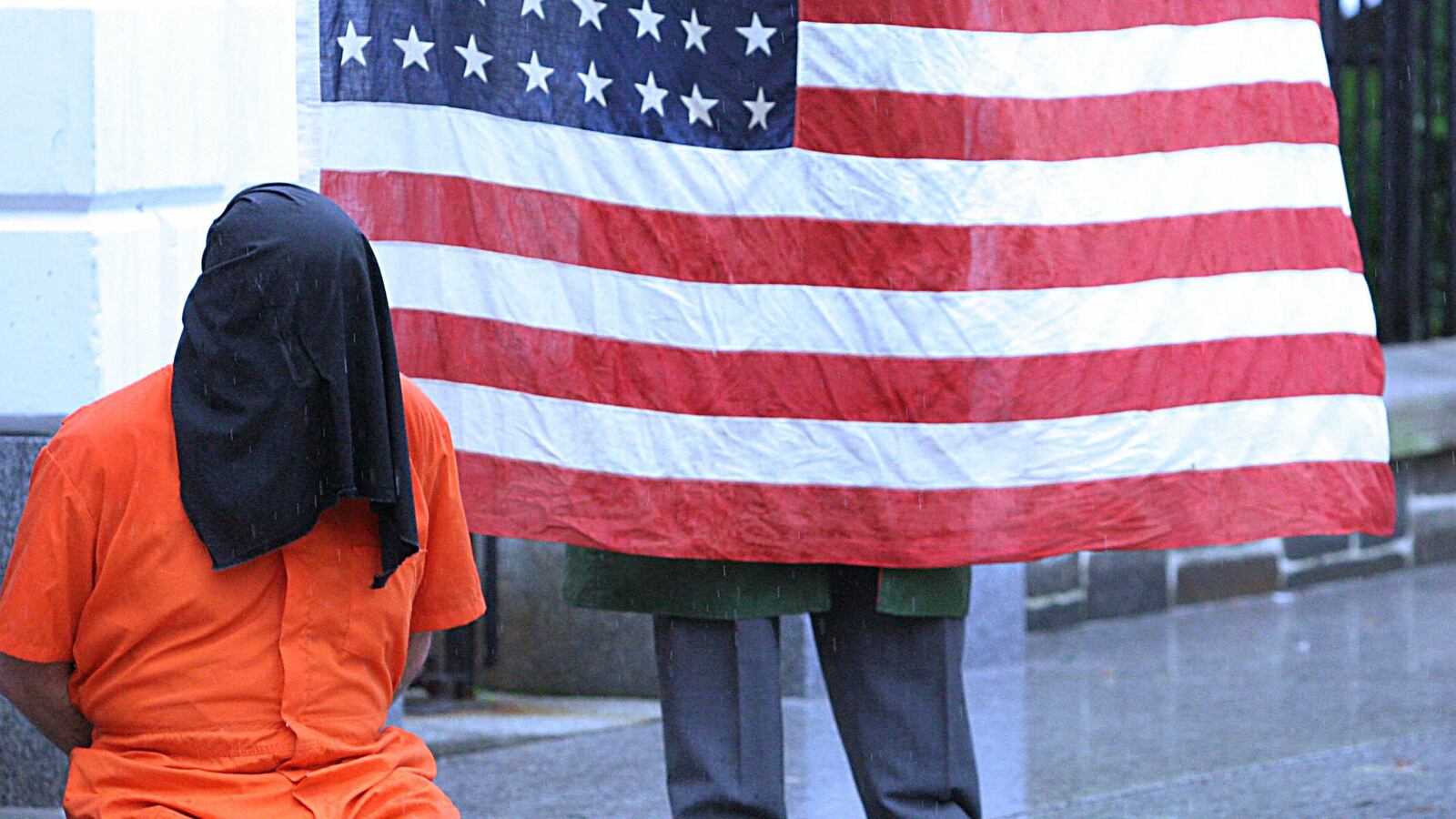Bombarded by President-Elect Donald Trump’s election rhetoric promising to step up the campaign against the so-called Islamic State, Americans are more likely to accept torture and indiscriminate bombing of suspected terrorists than they were two decades ago, according to a poll by the International Committee of the Red Cross released Monday.
The majority of those surveyed across more than a dozen countries including the United States still think bombing of populated areas and torturing detainees is wrong, according to the WINS/Gallup International poll, released by the ICRC. But rising numbers of people, especially Americans and Britons, said they are willing to accept less humane practices if it means winning the fight faster.
Yet the survey also showed that people in places like Syria and Yemen believe the laws of war are needed, in an almost wistful expression of hope for a humanity that is absent in two conflicts that have killed civilians by the hundreds of thousands.
“They are still telling you despite of all that, we feel if we let go the limits of war, it will be ten times worse,” said ICRC Director-General Yves Daccord in an interview.
The survey was conducted between June and September 2016 with 17,000 people in 16 countries, an update on a similar survey carried out by the ICRC in 1999. It specifically asked people what they thought of “torture,” rather than using the Bush-era terms like “enchanced interrogation techniques” like water boarding, ice baths, and sleep deprivation. Overall, two-thirds of those surveyed said torture was wrong, but more were willing to agree to harsh interrogation of detainees than in 1999.
The results are disturbing for a humanitarian organization that was set up to remind all on the battlefield to follow the laws of war as set out in the Geneva Conventions—especially how citizens of leading nations like the U.S. and Britain seem more comfortable with harsh practices than ever before.
ICRC officials see a further irony in that the 15-plus years of war since the attacks of September 11, 2001, on New York and Washington, D.C. have seen their relationships grow closer with seasoned American, British, and other Western military leaders, who see the laws of war as crucial to helping their troops both maintain their own humanity—and win over the opposition by carefully hitting the enemy and not civilians, and by treating that enemy humanely after capture.
“In the U.S. in the last 15 years, torture seems like something which is accepted, as something that you use as a tool to get information, whereas the military interestingly enough will tell you this is not at all the tool you need to use,” said ICRC Director-General Daccord. “Not only is it not good for human dignity, but it doesn’t provide you with the right information.”
That echoes the conversation relayed by President-Elect Trump with his nominee for Secretary of Defense, retired four-star Marine General James Mattis. Trump said he’d asked Mattis about his views on torture, and was surprised when Mattis said he’d gotten further with a pack of cigarettes and a couple of beers, rather than applying pain.
Red Cross officials hear that a lot in their discussions with U.S. military leaders, Daccord said. “If the military of their country are leading in that direction, I would say, follow them!”
It’s a point of view Trump may be hearing from other quarters of his transition team. Though transition team officials did not respond to requests for comment, a legal expert at the Washington, D.C.-based Heritage Foundation, which is advising the Trump transition, echoed Red Cross concerns over the polling results.
“The United States will never go back to waterboarding or any form of torture, something I believe the vast majority of the military, intelligence community and American public would never condone,” said House Intelligence Committee Ranking Member Adam Schiff, D-Calif., in a statement to The Daily Beast. “Not only is it immoral, but it is also unconstitutional, ineffective and violative of both U.S. and international law.”
“Forty-six percent of Americans surveyed think that captured enemy combatants may be tortured to obtained important military information, and thirty-three percent think torture is part of war,” according to the ICRC poll, said Heritage fellow Cully Stimson in a statement Monday. “These are disturbing numbers because torture is a crime, and banned under domestic and international law.”
Most of the leaders of the Congressional armed services or intelligence committees declined to comment, but that sentiment was echoed by House Intelligence Committee Ranking Member Adam Schiff, D-Calif.
“The United States will never go back to waterboarding or any form of torture, something I believe the vast majority of the military, intelligence community and American public would never condone,” Schiff said in a statement to The Daily Beast. “Not only is it immoral, but it is also unconstitutional, ineffective and violative of both U.S. and international law.”
On the more encouraging side for humanitarians, over two-thirds of all those surveyed think war should have limits, and nearly half think the Geneva Conventions keeps them from getting worse.
Ironically, while three-quarters of those surveyed believe attacks on hospitals and health-care providers are wrong, Russians actually outpaced Americans and Brits in their disapproval of such attacks —an irony in that U.S. officials frequently accuse the Russians of indiscriminate attacks in Crimea or in Syria on behalf of the Bashar Assad regime.
Update 12/5, 12:17pm: This story has been updated to include a quote from the Heritage Foundation, which advises the Trump transition team.





